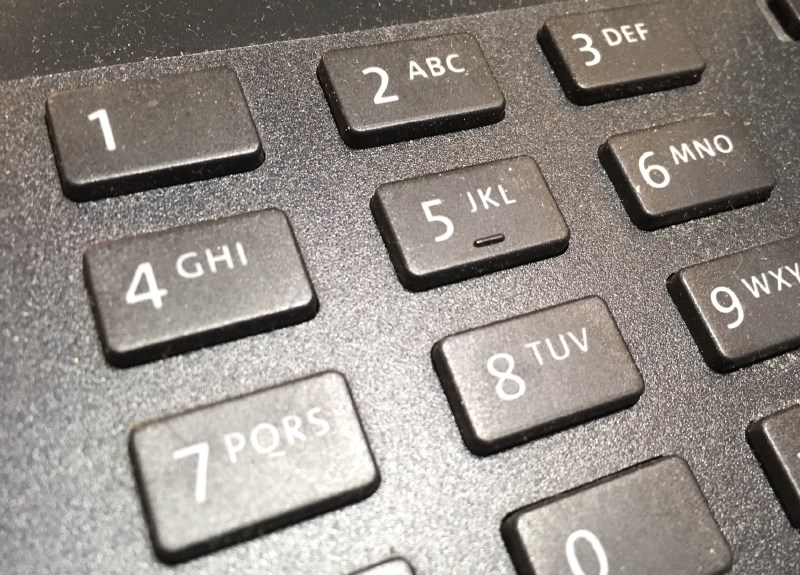View Royal Mayor David Screech reports that someone stole his login information to gain access to his Canada Revenue Agency account. He discovered his email had been changed, along with his direct deposit information.
Whoever broke into his account then used that information to apply for a $4,000 Canada Emergency Response Benefit payout. The mayor has been forced to change his passwords and email address.
Regrettably Screech is only one of many who’ve been victimized by such scams.
Some of us have received phone calls or emails claiming to come from law enforcement agencies. We are told a warrant has been issued for our arrest, and the police will arrive unless an immediate fine is paid.
Others are warned they owe the CRA money, and various threats are made to extort payment. Credit card accounts have also been hacked.
The volume of these scams, which began in earnest several years ago, has grown as the COVID epidemic surges. The victims are often elderly people, perhaps already anxious about their health and vulnerable to intimidating calls.
What is particularly frustrating is how rarely anyone gets caught, despite the extent of this racket. Between 2014 and 2019, CRA hacks alone netted $17 million, country-wide, yet law enforcement agencies report only a handful of arrests.
While our local police departments are sympathetic, their attention appears focussed mainly on damage control. Contact them to report a scam, and the best you can hope for is advice about how to avoid becoming a victim, or how to limit damage already done.
But even getting their attention can be a challenge. The Victoria police department didn’t respond when we asked what they’re doing to catch scammers.
The Canadian Anti-Fraud Centre, which is supposed to be quarterbacking such efforts, didn’t reply either. We got a recorded message saying the centre is indefinitely closed.
This is, to put it mildly, discouraging. We understand the limitations caused by the current COVID outbreak. But surely at least skeleton crews could be at work on this challenge.
In fact there has been some limited progress. RCMP detachments in Ontario are running an investigation called Project OCTAVIA. It aims primarily at CRA scams, but also bank account fraud.
Last month it was revealed that these scams are being operated mainly out of India. Unfortunately, police raids in that country have failed to accomplish much of anything.
As a result the OCTAVIA project is targeted mainly at so-called “money mules” here in Canada. These low-level recruits place the phone calls and emails intended to defraud unwitting victims, bundle the cash, and pass it along to their bosses in India.
Recently one of these mules, Jatin Chahal from Brampton, Ontario, was caught.
Chahal, age 21, is charged with fraud over $5,000, possession of the proceeds of crime, and laundering the proceeds of crime.
Unfortunately he was immediately released on an undertaking to appear at a Brampton court in September.
We say “unfortunately”, because when RCMP officials accused a second man of being a mule, he promptly fled the country. Henry Xue of Vancouver was allegedly part of a ring which conducted credit card frauds.
His bank account records showed more than $1 million being moved in an out over a short period of time. Xue’s family insist he is innocent.
It might be thought those scam phone calls and emails would leave an electronic footprint that, at least in theory, should be traceable.
It’s understood that mules use “ghost” addresses to conceal their true identity. Yet with sophisticated software, can’t our law enforcement agencies make more of a dent in this problem?
The answer is that they’re reluctant to say what they are doing. If their reason is to protect ongoing investigations, that is quite proper. Necessarily, much of the effort to combat these scams flies under the radar.
Yet the limited success rate is well below the level required to confront what has become a major industry.
Nor is it sufficient to issue merely defensive advice. If the scam is sophisticated enough, anyone can be tricked.
Consider this example. A 23-year-old Cornwall, Ont., woman was robbed of her life savings after being called by someone identifying himself as an RCMP officer.
He gave the woman his badge number, and his caller ID showed up as belonging to the local RCMP detachment. She was fooled, and handed over her hard-earned savings.
When this is the kind of chicanery we are up against, a full-scale police campaign is required to root out these scammers and send them to jail.
If resources are lacking, let Parliament provide them. For until this is done, no-one is safe.



